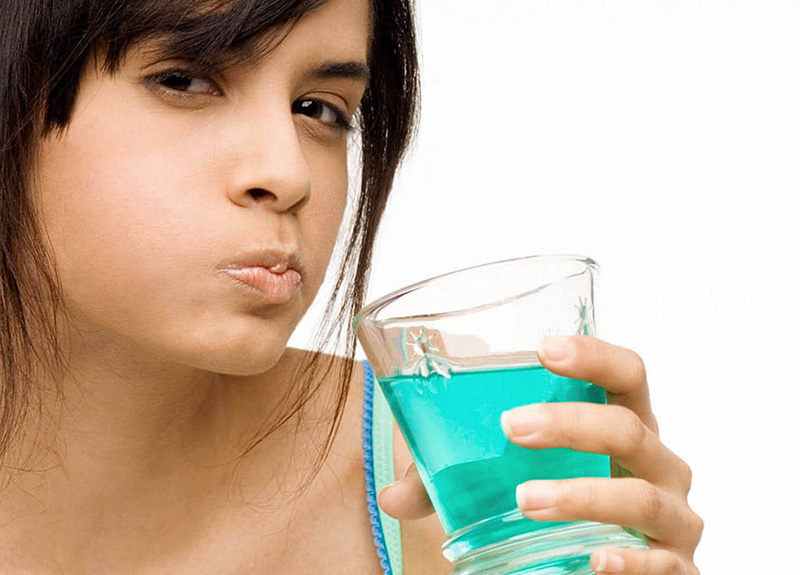
Dental hygiene can be a confusing topic, with literally hundreds of products available all vying for your attention. Mouth rinse (also called oral rinse or mouthwash) is a liquid solution used either before or after brushing and flossing to reduce the amount and growth of oral bacteria. The reasons for using a mouth rinse range from cosmetic to therapeutic, and the products available vary just as much, if not more. How do you determine which ones are right for you?
Often, dental patients who have had procedures or surgery, or anyone suffering from advanced periodontal issues, will welcome the relief a soothing, non-alcoholic mouth rinse offers. For others, it’s all about comfort and general hygiene. Let’s take a look at some of the reasons people use mouth rinses.
Whatever your reason for using a mouth rinse, it’s important to select the right type of formula to address it.
A wide range of commercial mouth rinses are available for those who simply want fresher breath. From Listerine through Crest, Oral B and the various “No Name” brands, the cheaper products will give you a blast of freshness through your mouth. If you want more out of your mouth rinse, however, look for medicated products or ask your dentist to prescribe something for you.
A peroxyl-based rinse, for example, is helpful for mouth sores, because it has an oxygenating action that cleans out debris to promote healing and relieves the pain of abrasions, irritations and burns. Other medicated mouth rinses include anti-plaque, anti-cavity, anti-tartar and chemotherapeutic products, most of which are manufactured in America and regulated by the Food and Drug Administration.
For cleaner, whiter teeth, nothing beats having a professional cleaning done once or twice a year, but you can boost your efforts in between by using a whitening rinse. If you’re vegan or particularly allergy-prone, you might want to consider natural or herbal products, such as those offered by The Natural Dentist and Tom’s of Maine. These are typically made with alternative ingredients and don’t contain alcohol, chemicals or preservatives.
With all the information you now have about mouth rinsing, you might feel ready to go out and buy your chosen product. That’s all well and good, but using it correctly is half the battle for getting results. Check the bottle of mouth rinse for any specific instructions and follow those, if possible. Clean your teeth thoroughly before using an anti-cavity rinse, because the cleaner they are the higher the benefit you’re likely to enjoy.
Measure the right amount to use and avoid diluting it with water. Take the liquid into your mouth and swirl it around as vigorously as you can, so it reaches into the front and sides of the mouth equally. Tip your head back and gargle with it in your throat, to enable the liquid to reach any bacteria accumulating in this area. Continue swishing the rinse in your mouth for around 20 seconds, before spitting it out completely. Avoid rinsing, eating, drinking or smoking for 30 minutes after using it, so your mouth and teeth are able to enjoy the full effectiveness of the process.
Most mouth rinses are completely safe for adult users, and special formulations are available for children. If you have any particular allergens, however, these might interact with your mouth rinse and cause problems. If you develop side effects such as the staining of teeth or other dental resources, changes in your taste sensations, dryness or sores in the mouth, sensitive tooth roots, swollen glands or general irritation and numbness, get medical attention as soon as you can. If anyone in your household swallows mouth rinse, watch for symptoms of overdose such as nausea and vomiting, convulsions and low blood pressure. Formulations containing alcohol should be avoided by patients who are pregnant, experience problems with dry mouth, or have oral cancer concerns.
Do you ever feel nervous about dentist appointments? Rest assured: we cater to nervous and anxious patients in a gentle and considerate manner. Call us now to schedule a free consultation!